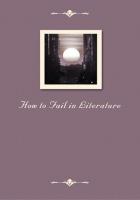"I wouldn't go back to him. I don't say he's knowingly a rascal, but he's ignorantly a rascal, and he proposed a rascally thing to me. I behaved badly to him, and I'd give anything to undo the wrong I let him do himself; but I'll never go back to him."
"If you went back, on your old salary," the general persisted pitilessly, "you would be very fortunate if you brought your earnings up to twenty-five hundred a year."
"Yes--"
"And how far do you think that would go in supporting my daughter on the scale she is used to? I don't speak of your mother, who has the first claim upon you."
Burnamy sat dumb; and his head which he had lifted indignantly when the question was of Stoller, began to sink.
The general went on. "You ask me to give you my daughter when you haven't money enough to keep her in gowns; you ask me to give her to a stranger--"
"Not quite a stranger, General Triscoe," Burnamy protested. "You have known me for three months at least, and any one who knows me in Chicago will tell you--"
"A stranger, and worse than a stranger," the general continued, so pleased with the logical perfection of his position that he almost smiled, and certainly softened toward Burnamy. "It isn't a question of liking you, Mr. Burnamy, but of knowing you; my daughter likes you; so do the Marches; so does everybody who has met you. I like you myself.
You've done me personally a thousand kindnesses. But I know very little of you, in spite of our three months' acquaintance; and that little is--But you shall judge for yourself! You were in the confidential employ of a man who trusted you, and you let him betray himself."
"I did. I don't excuse it. The thought of it burns like fire. But it wasn't done maliciously; it wasn't done falsely; it was done inconsiderately; and when it was done, it seemed irrevocable. But it wasn't; I could have prevented, I could have stooped the mischief; and I didn't! I can never outlive that."
"I know," said the general relentlessly, "that you have never attempted any defence. That has been to your credit with me. It inclined me to overlook your unwarranted course in writing to my daughter, when you told her you would never see her again. What did you expect me to think, after that, of your coming back to see her? Or didn't you expect me to know it?"
"I expected you to know it; I knew she would tell you. But I don't excuse that, either. It was acting a lie to come back. All I can say is that I had to see her again for one last time."
"And to make sure that it was to be the last time, you offered yourself to her."
"I couldn't help doing that."
"I don't say you could. I don't judge the facts at all. I leave them altogether to you; and you shall say what a man in my position ought to say to such a man as you have shown yourself."
"No, I will say." The door into the adjoining room was flung open, and Agatha flashed in from it.
Her father looked coldly at her impassioned face. "Have you been listening?" he asked.
"I have been hearing--"
"Oh!" As nearly as a man could, in bed, General Triscoe shrugged.
"I suppose I had, a right to be in my own room. I couldn't help hearing; and I was perfectly astonished at you, papa, the cruel way you went on, after all you've said about Mr. Stoller, and his getting no more than he deserved."
"That doesn't justify me," Burnamy began, but she cut him short almost as severely as she--had dealt with her father.
"Yes, it does! It justifies you perfectly! And his wanting you to falsify the whole thing afterwards, more than justifies you."
Neither of the men attempted anything in reply to her casuistry; they both looked equally posed by it, for different reasons; and Agatha went on as vehemently as before, addressing herself now to one and now to the other.
"And besides, if it didn't justify you, what you have done yourself would; and your never denying it, or trying to excuse it, makes it the same as if you hadn't done it, as far as you are concerned; and that is all I care for." Burnamy started, as if with the sense of having heard something like this before, and with surprise at hearing it now; and she flushed a little as she added tremulously, "And I should never, never blame you for it, after that; it's only trying to wriggle out of things which I despise, and you've never done that. And he simply had to come back," she turned to her father, "and tell me himself just how it was.
And you said yourself, papa--or the same as said--that he had no right to suppose I was interested in his affairs unless he--unless-- And I should never have forgiven him, if he hadn't told me then that he that he had come back because he--felt the way he did. I consider that that exonerated him for breaking his word, completely. If he hadn't broken his word I should have thought he had acted very cruelly and--and strangely. And ever since then, he has behaved so nobly, so honorably, so delicately, that I don't believe he would ever have said anything again--if I hadn't fairly forced him. Yes! Yes, I did! " she cried at a movement of remonstrance from Burnamy. "And I shall always be proud of you for it." Her father stared steadfastly at her, and he only lifted his eyebrows, for change of expression, when she went over to where Burnamy stood, and put her hand in his with a certain childlike impetuosity. "And as for the rest," she declared, "everything I have is his; just as everything of his would be mine if I had nothing. Or if he wishes to take me without anything, then he can have me so, and I sha'n't be afraid but we can get along somehow." She added, "I have managed without a maid, ever since I left home, and poverty has no terrors for me!"













